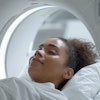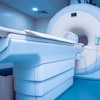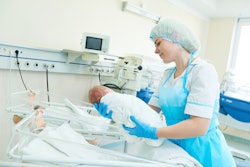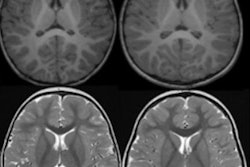
Newborns who suffer seizures within a few days after birth tend to have particular findings on MRI, according to research published on July 15 in the Journal of Perinatology.
The results could help clinicians better care for these children and communicate with their patients, wrote a team led by Yi Li, MD, of the University of California, San Francisco.
"Findings on initial MRI can help with ... counseling on short-term outcomes following acute provoked neonatal seizures," Li and colleagues noted.
Seizures caused by a brain injury affect nearly 1 out of 3 newborns for every 1,000 births in the U.S. and are often the first sign of neurologic dysfunction, the team explained. Seizures tend to be caused by hypoxic-ischemic encephalopathy, ischemic stroke, or intracranial hemorrhage and put children at risk of conditions such as postnatal epilepsy, developmental delay, intellectual disability, and cerebral palsy.
MR imaging has been increasingly used to determine the cause of seizures in neonates and to predict their long-term prognosis, but more research is needed to understand the association between seizures and MRI findings, Li's group noted.
The investigators sought to explore this association by conducting a study that included 236 newborns who underwent brain MRI at a median age of four days. Of these, 91% had abnormal MRI findings, 50% of these cases were cortical injuries, and 38% were "deep gray" injuries (that is, hypoxic-ischemic encephalopathy and kernicterus patterns).
The group reported that the risk of seizure increased with intracranial hemorrhage (odds ratio [OR], 3.2, with 1 as reference) and hypoxic-ischemic encephalopathy (OR, 2.7).
The team also reported the following:
| Radiologic findings associated with high risk of seizure | |
| Finding | Percentage |
| Focal ischemic stroke | 36% |
| Hypoxic ischemic encephalopathy | 28% |
| Other | 12% |
| Suspected infection | 7% |
The authors also noted that 18% of the children included in the study had more than one abnormal MRI finding.
"In the context of neonatal acute provoked seizures, MRI findings of intracranial hemorrhage or hypoxic ischemic encephalopathy as the underlying etiology for acute provoked seizures, and/or cortical location of injury were associated with high seizure burden," the authors noted.
The study results could translate into better care for newborns who experience seizures due to a brain injury.
"These imaging-focused data add further detail to the existing knowledge about neonates with acute provoked seizures, allowing for more detailed counseling on short-term outcomes based on specific imaging diagnoses and locations of injury," the group concluded.
Click here for the complete study.





















